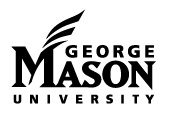This class is CLOSED! Are you interested in our class in March 2016? Click here.
The Center for World Religions, Diplomacy, and Conflict Resolution
Approaches to Conflict Management and Resolution: Field Work with Syrian Refugees
CONF 695/385
3 Credits March 7 – 15, 2015 Price: $3,890
SPACE LIMITED – APPLY by January 15, 2015
Please email the following items to Michelle Everson at meverson@gmu.edu in one single PDF file containing all application materials. The title of this document should be your first and last names (example: “John Smith.pdf”). Your name should appear on each page of your application.
- Your resume (maximum one page)
- A letter of interest explaining why the trip is important to you and your qualifications for participating in an advanced practice course in a conflict zone (maximum one page)
- Contact information for two references (name, position, email address, and relationship to you); please note that we will get in touch with you prior to contacting your references
It has been nearly four years since the Syrian uprising began and has gone from being a nonviolent revolution to one of the bloodiest and most tragic conflicts the Middle East has known in modern times. As the war between the Syrian government forces and the Syrian opposition continues, the refugee situation worsens daily, military measures become even more extreme, and the most precious jewels of Syrian culture and history are daily being reduced to rubble.
As thousands of refugees pour from Syria into Turkey on a daily basis, it is necessary to examine their situation. This class will look at the Syrian tragedy from a critical perspective of experiments in conflict resolution interventions from their pre-war stage inside Syria to their current mid-war period. There will be a retrospective evaluation of pre-war Syria citizen diplomacy and interfaith efforts, and current efforts at inculcating multi-religious and anti-sectarian skills of conflict management, civil society building and nonviolent resistance.
This is a service-learning course that brings students face-to-face with the refugee situation and the realities of the conflict on the ground. In partnership with Project Amal ou Salam, students complete several days of service work over the course of the trip. Although service locations are subject to change, past locations have included Syrian refugee schools in Istanbul and southern Turkey; orphanages and a rehabilitation center in southern Turkey; and a refugee camp.
We will additionally address the critical nonviolent stage of the revolution and what was missing to make it successful. We will address the general history of nonviolent resistance and social movements and the fate of nonviolence in the Syrian struggle. We will also look at the effect of outside actors and geopolitics on the direction of these movements. CRDC staff have over thirty years of research and practical experience with religious extremism, and we will examine the practical ways to cope with the externally- and internally-funded extremist realities that have profoundly altered the challenges of building peace in Syria. Nonviolence theory and practice in combination with conflict analysis and resolution theory will be a major focus point of the class.
This class will be a practice class in that half our time will be spent deeply engaging with and learning from Syrian activists whose work crosses the divides of civil society, medicine, education, and engineering. Explorations will be made of goal-oriented and principled processes of coalition-building that focuses less on what or who is being opposed and more on the ethical practices of what can be built for the future, as well as an ethical approach to nonviolent social change that is radically inclusive in the process of building peaceful post-conflict societies. The course will entail lectures by Dr. Marc Gopin, touring in Turkey, studies with CRDC’s senior analyst, attorney and conflict resolution expert Hind Kabawat, and engagement with Syrians in Istanbul and southern Turkey.
Eligibility: Approaches to Conflict Management and Resolution is open to all Mason and non-Mason undergraduate, graduate, and PhD students as a 3-credit course and to non-students as a professional development seminar. Mason students can take the course as CONF 695 or 385.
Program Fee: The course fee of $3,890 covers 3 credits, hotel rooms for 8 nights, 2 meals per day, in-country ground transportation, cultural excursions, entrance fees, and course trainers’ and speakers’ costs. It does not include airfare to Turkey.
INSTRUCTOR
Dr. Marc Gopin is the James H. Laue Professor of Religion, Diplomacy and Conflict Resolution, and the Director of the Center on Religion, Diplomacy and Conflict Resolution at George Mason University’s School for Conflict Analysis and Resolution.
Gopin has lectured on conflict resolution in Switzerland, Ireland, India, Italy, and Israel, as well as at Harvard, Yale, Columbia, Princeton, and numerous other academic institutions. Gopin has trained thousands of people worldwide in peacemaking strategies for complex conflicts in which religion and culture play a role. He has engaged in back channel diplomacy with religious, political and military figures on both sides of conflicts, especially in the Arab/Israeli conflict. He has appeared on numerous media outlets, including CNN, CNN International, Court TV, The Jim Lehrer News Hour, Israel Radio, National Public Radio, The Connection, Voice of America, and the national public radios of Sweden, Ireland, and Northern Ireland.
Gopin’s research is found in numerous book chapters and journal articles, and he is the author of Between Eden and Armageddon: The Future of World Religions, Violence and Peacemaking (Oxford University Press, 2000); Holy War, Holy Peace: How Religion Can Bring Peace to the Middle East (Oxford University Press, 2002), a study on what was missing from the Oslo Process, and what will be necessary culturally for a successful Arab/Israeli peace process; Healing the Heart of Conflict (Rodale Press, 2004); and To Make the Earth Whole: The Art of Citizen Diplomacy in an Age of Religious Militancy (Rowman & Littlefield, 2009).






